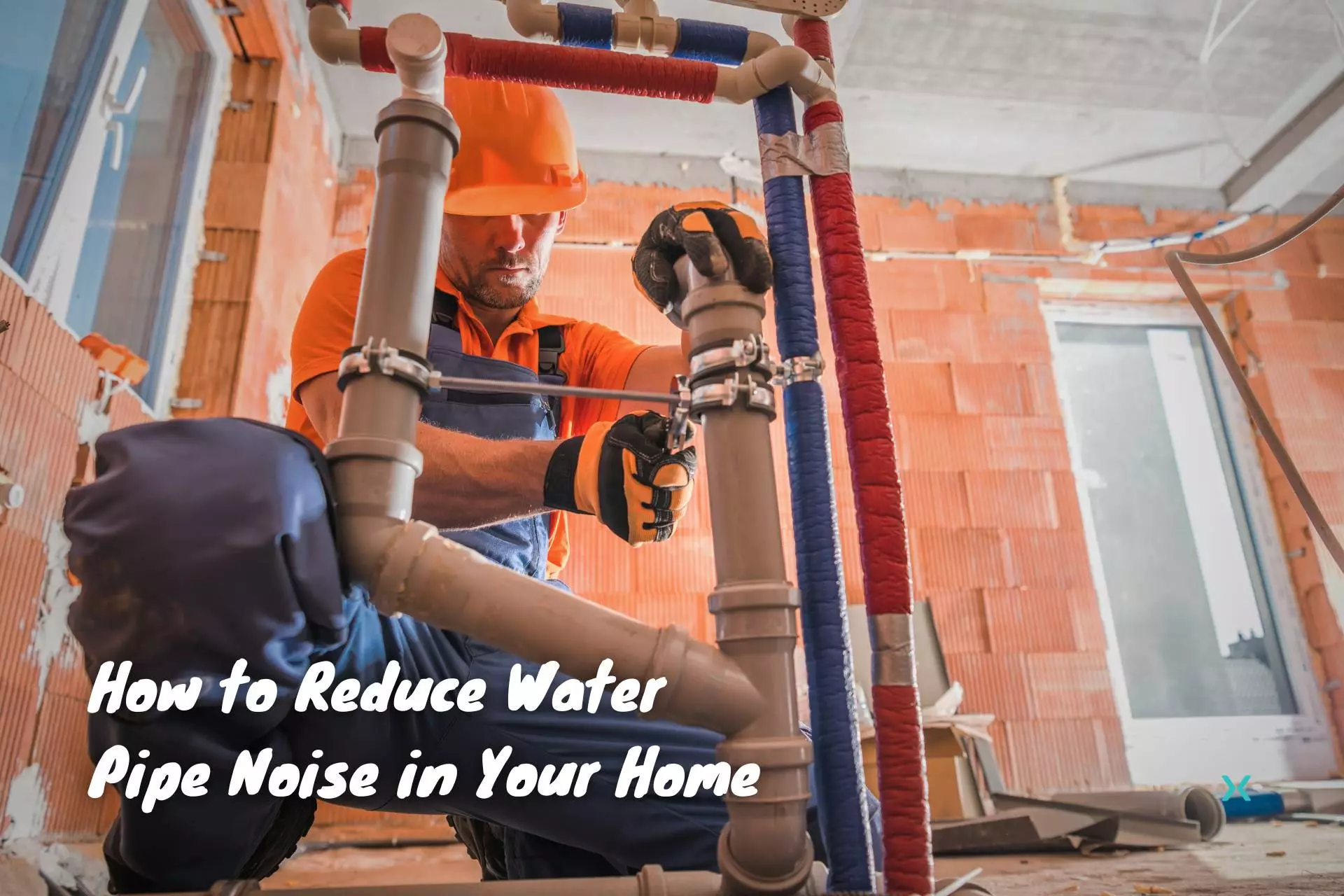Table of Contents
💧 Pipes Making Noise When Water Is Turned On? Here’s How to Fix It!
Imagine settling into the comfort of your home, only to be disrupted by the startling sounds of banging, whistling, or humming from your water pipes. This noise isn’t just a minor inconvenience; it’s a symptom of underlying issues in your plumbing system that, if ignored, could lead to more serious problems. Addressing water pipe noise is not just about peace and quiet—it’s about ensuring the longevity and efficiency of your home’s plumbing infrastructure.
In this article, we’ll explore practical and effective strategies to reduce water pipe noise, offering both immediate solutions and long-term preventative measures. From diagnosing the causes to implementing fixes, we’ll guide you through the steps to achieve a quieter, more serene home environment. Whether you’re a seasoned DIY enthusiast or a homeowner looking to understand more about your plumbing system, this guide will equip you with the knowledge to tackle water pipe noise head-on.
💧 Understanding the Causes of Noisy Water Pipes
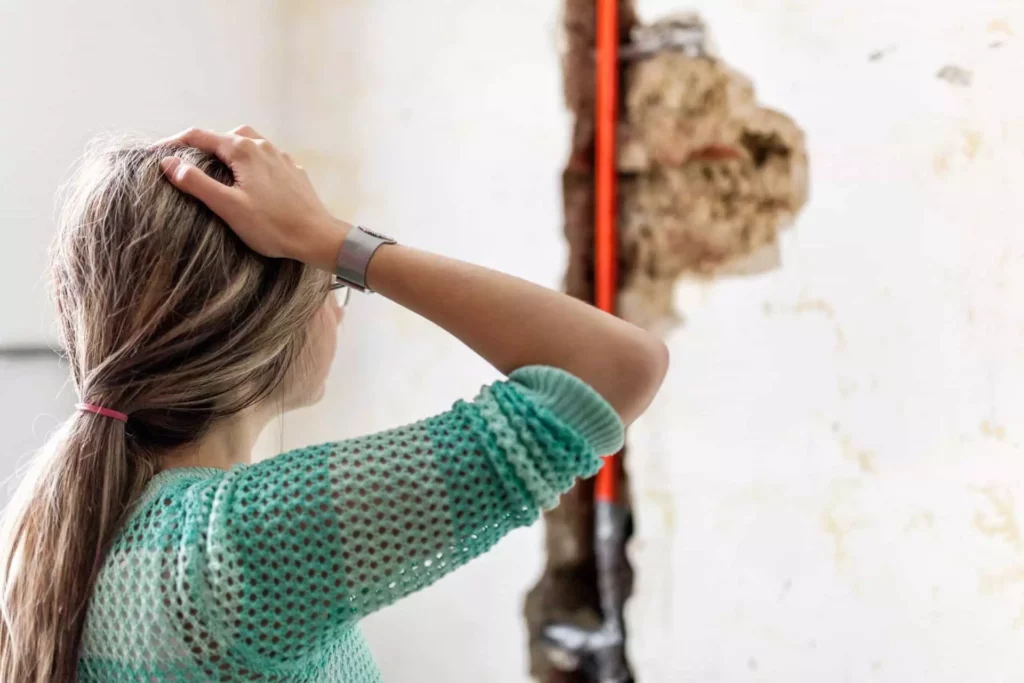
🔧 The Role of Water Pressure in Pipe Noise
One of the main culprits behind noisy water pipes is excessive water pressure. When the water pressure in your pipes is too high, it can cause vibrations and create loud banging noises or knocking sounds.
These noises are often most noticeable when turning on a faucet or toilet flush. Excessive water pressure can result from various factors, such as a faulty pressure regulator or a malfunctioning water pump.
When the pressure exceeds the recommended range, it puts stress on the pipes, leading to the formation of air pockets and turbulence. The pressure should typically be at most 55 pounds per square inch.
Otherwise, disturbances in the water flow will continue to generate the characteristic noise that can be heard throughout your plumbing system.
🔧 Impact of Pipe Material on Noise Levels
The material used to manufacture your pipes can also contribute to the noise you hear. Certain materials like copper and PVC are quieter than older materials like galvanized steel or iron. Copper and PVC pipes absorb more sound, resulting in less noise transmission.
On the other hand, galvanized steel and iron pipes are more prone to vibrations and reverberations, which can amplify the noise. These materials have a higher density and stiffness, making them less effective in dampening the sound waves produced by the flowing hot and cold water.
Furthermore, the diameter and thickness of the pipes can also affect noise transmission. Thicker pipes tend to be more resistant to vibrations and can help minimize noise.
🔧 How Pipe Installation Affects Noise
Proper installation of your water pipes is crucial to minimize noise. Properly insulating the pipes can significantly reduce noise transmission, as the insulation is a barrier to absorb and dampen sound waves. This step is essential for a quieter plumbing system.
If pipes are not adequately secured or have loose fittings, it can lead to vibrations and banging noises. Additionally, incorrectly angled or improperly supported pipes can cause water to flow unevenly, creating turbulence and making a rattling noise. It’s vital to ensure that pipes are securely fastened to walls or other structural elements during installation to prevent any movement or vibrations that can generate noise.
Appropriate pipe hangers and supports are crucial for providing stability and minimizing the chances of rattling or knocking sounds. The angle at which the pipes are installed also plays a significant role in noise reduction. Properly angled pipes allow for smooth water flow without creating turbulence or excessive pressure changes, helping to maintain a consistent and quiet water flow throughout the system.
💧 Quick Fixes for Noisy Water Pipes
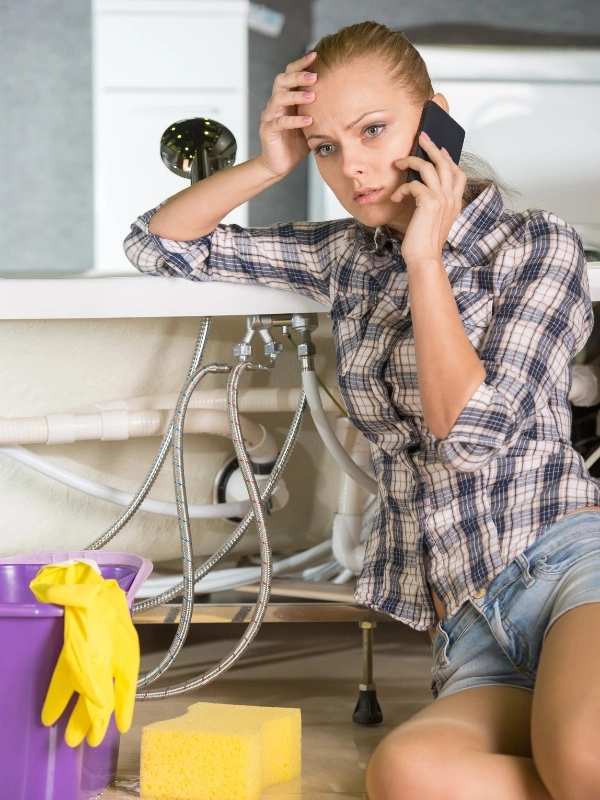
🧰 Adjusting Water Pressure
Adjusting the water pressure in your home can significantly reduce noise from your pipes, especially if high water pressure is the root cause. A practical solution is to install a pressure-regulating valve. This device is engineered to lower water pressure to a safer, more manageable level, thus reducing the stress on your plumbing system.
Unless you have expertise in plumbing, it’s advisable to seek assistance from a licensed plumber to install and calibrate the valve. This ensures that it’s set up correctly to meet the specific requirements of your home. Not only does this approach help in mitigating noise, but it also safeguards your plumbing system against the potential damages that can arise from excessive pressure.
🧰 Insulating Your Pipes
Insulating your water pipes is another effective strategy to lessen the noise they produce. This straightforward method entails wrapping exposed pipes with foam pipe sleeves or applying insulation tape. The additional layer of insulation acts as a sound absorber, muffling the noise generated as hot water travels through the pipes.
Beyond noise reduction, insulating your pipes offers the added advantage of minimizing heat loss from hot water pipes. By retaining heat within the pipes, you can lower energy costs and enhance the efficiency of your plumbing system. This dual benefit makes pipe insulation a practical and cost-effective solution for homeowners looking to address pipe noise and improve their home’s energy efficiency.
🧰 Using Noise Reduction Clamps
Excessive vibration or rattling of your pipes against nearby surfaces can be significantly mitigated with the use of noise reduction clamps, also referred to as shock absorbers. These clamps are engineered to curb movement and absorb vibrations, thereby effectively diminishing the noise produced by loose pipes.
The installation of noise reduction clamps is a straightforward task. By adhering to the manufacturer’s instructions, you can easily attach them to the problematic pipes. The impact on your plumbing system’s noise level can be profound, often resulting in a noticeably quieter environment. This simple fix can make a big difference in reducing the auditory disruptions caused by your plumbing system.
💧 Long-Term Solutions for Noisy Water Pipes
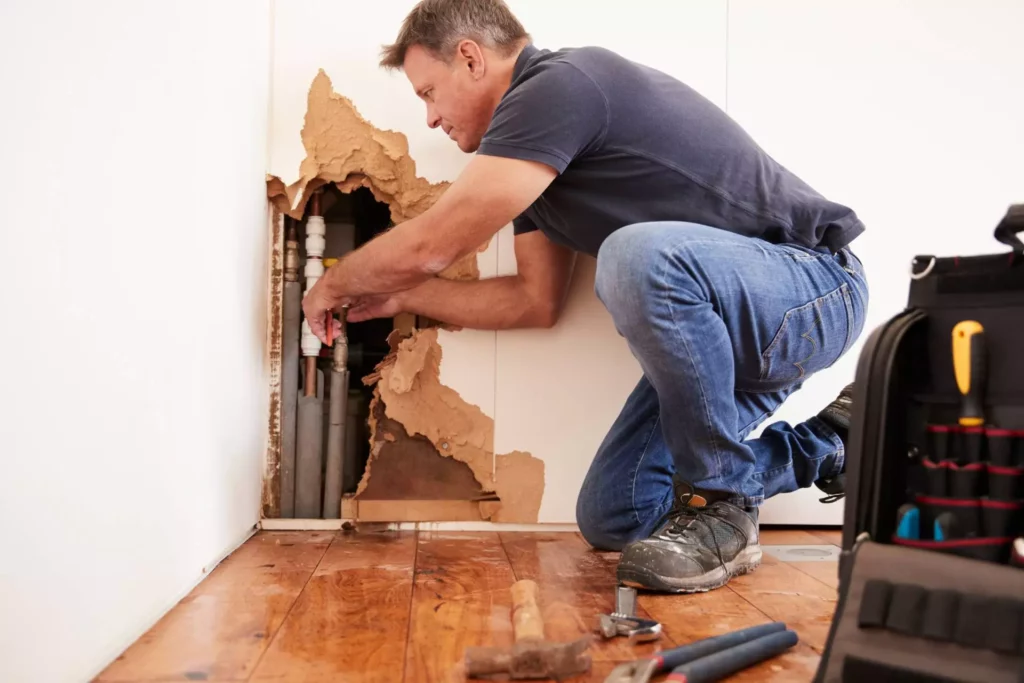
🧰 Replacing Old Pipes
When faced with old and irreparable noisy pipes, replacing them becomes a practical solution. Opting for modern materials like copper pipes or PVC can dramatically lower noise levels in your home. This upgrade enhances the acoustics and offers improved durability and longevity, ensuring peace and quiet for the years to come.
For such a significant task, employing a professional plumber is essential. They possess the expertise to remove the old pipes correctly without harming any surrounding areas. Following the removal, the installation of new pipes is conducted with precision. The plumber will ensure they are securely fastened and properly insulated, reducing noise transmission. This meticulous process guarantees a quieter and more serene home environment, alongside the added benefits of a modern and efficient plumbing system.
🧰 Installing Anti-Vibration Clamps
For a sophisticated approach to reducing pipe noise, consider the installation of anti-vibration clamps. These specialized clamps are engineered to absorb vibrations, preventing them from spreading noise throughout your home. By curtailing noise transmission at its source, anti-vibration clamps can improve your comfort.
An adept plumber will thoroughly evaluate your plumbing system to identify the most effective spots for clamp installation. It’s worth noting that some homes might already have air chambers that require replacement. The plumber will then securely fasten the clamps to your pipes, ensuring a snug and stable installation.
Once installed, these clamps absorb the vibrations, leading to annoying noises. This intervention promises a significantly quieter and more serene home environment, allowing you to enjoy peace and tranquility.
🧰 Install Water Hammer Arrestors
Water hammers, characterized by loud banging noise when water flow is suddenly halted or changes direction, are prevalent in many homes. This phenomenon occurs due to a shockwave created by the abrupt pressure changes. A viable solution to this problem is the installation of a water hammer arrestor.
Water hammer arrestors are designed to absorb the shock from these sudden pressure changes, mitigating the noise. They are ideally installed close to appliances or fixtures that frequently cause water hammers, such as washing machines or dishwashers, effectively preventing the shockwaves from causing noise throughout your plumbing system and ensuring a more tranquil home environment.
For installing a water hammer arrestor, the expertise of a professional plumber is indispensable. They will evaluate your plumbing system to determine the most suitable size and type of arrestor for your specific situation. With their skilled installation, the plumber will ensure that the arrestor effectively addresses the water hammer issue, thereby eliminating the disruptive noise and contributing to the overall peace of your home.
📗 Related Reading: DIY Guide to 15 Common Plumbing Problems & Solutions
💧 Conclusion
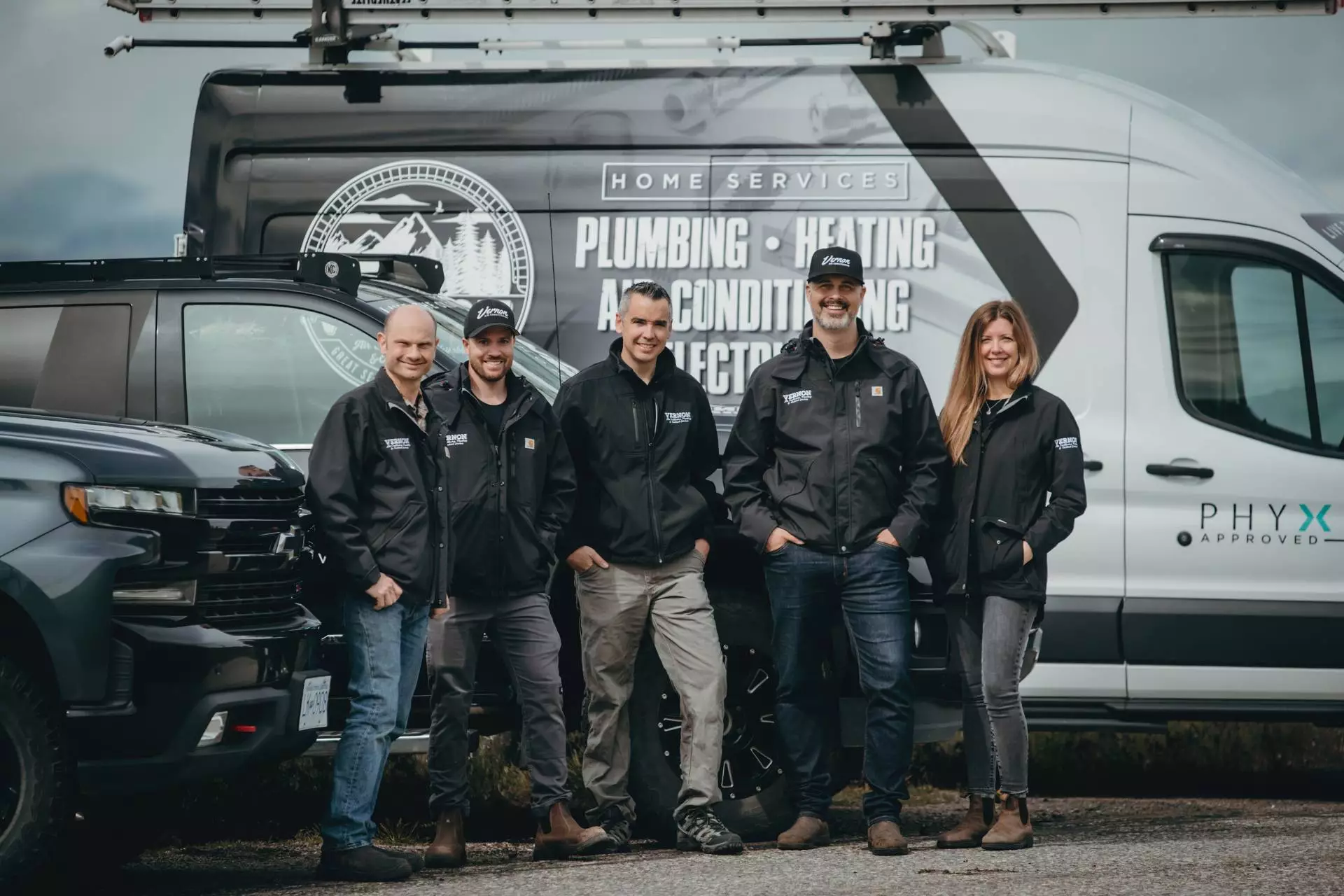
This comprehensive guide explored various effective strategies to mitigate water pipe noise in your home, including installing pressure-regulating valves, pipe insulation, anti-vibration clamps, and water hammer arrestors. Each solution targets specific causes of pipe noise, from high water pressure to sudden changes in water flow, ensuring a quieter and more peaceful living environment.
Phyxter Home Services brings a wealth of expertise and experience to the table, offering high-quality information grounded in professional knowledge. Our dedication to providing practical, actionable advice reflects our commitment to home maintenance and repair excellence.
📗 For more insights into maintaining a serene and efficient home, we encourage you to explore our other plumbing articles, where you’ll find a treasure trove of valuable tips and solutions.

